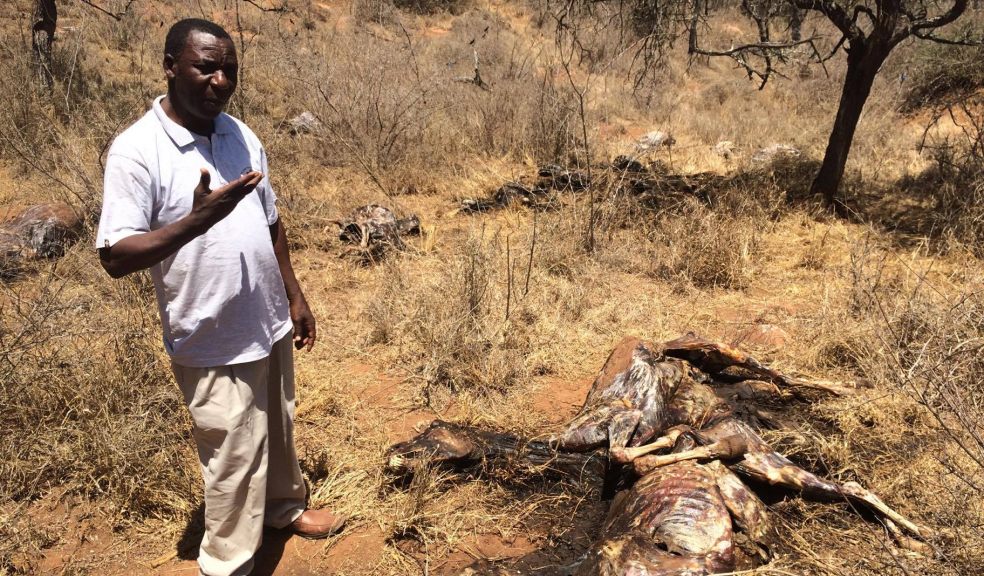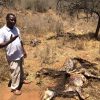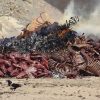
Charity calls for halt to skin trade causing mass-suffering to donkeys
The results of a shocking investigation by The Donkey Sanctuary reveals mass-scale suffering of donkeys caught up in global trading of their skins to sustain the demand for ejiao, a traditional Chinese medicine that relies on gelatin from the hides.
In the first comprehensive study of the trade, the charity has discovered that as many as 10 million donkeys are at risk and it now calls for an immediate halt to the trade until it can be proven to be sustainable and humane.
The Donkey Sanctuary’s ‘Under the Skin’ investigative report reveals that the trade has led to an explosion in the number of donkeys in Africa, Asia and South America being sourced, stolen and slaughtered for their skins which are then destined for China.
The trade, in both its legal and illegal forms, is resulting in a chain of welfare issues for the donkeys at every step, from sourcing to transport and finally slaughter.
Alex Mayers, International Programme Manager at The Donkey Sanctuary said: “We’ve seen reports of donkeys being skinned alive, being bludgeoned to death, being transported for long distances with no opportunity to rest, feed or drink. Donkeys are a very intelligent species and particularly sensitive to the effects of stress.
“The welfare of any donkey both during and at the end of its life is paramount and should be the primary concern, as for any food-producing animal. Sadly the welfare of donkeys used to produce skins and meat is frequently reported to be ‘severely compromised’ during sourcing, transport and slaughter.”
Virtually all countries with significant donkey populations are reporting an increase in donkey slaughter for this market and countries such as Burkina Faso and Niger have banned the export of donkey hides.
Donkeys caught up in the skin trade have little hope - the skin of an expensive healthy animal generates the same profit as that of a diseased, poorly kept or weak animal, which means that traders often see no value in maintaining good welfare conditions.
Mike Baker, CEO of The Donkey Sanctuary, said: “Donkey populations cannot continue to be decimated and communities must not be deprived of their only means of survival. Action must be taken now to curb this trade, in the interest of both animal and human welfare.”
The Donkey Sanctuary’s ‘Under the Skin’ report will now be used as the authoritative tool to champion donkeys and their welfare on a global scale and has the following recommendations it will act on:
- The Donkey Sanctuary calls for a halt to the trade in donkey skins to produce ejiao until the impact of the trade can be assessed and shown to be both humane for donkeys and sustainable for the communities that depend on them.
- In particular, The Donkey Sanctuary urges other countries affected by this trade to follow the lead taken by Burkina Faso and Niger and ban the slaughter and export of donkeys for their skins.
- The Donkey Sanctuary urges governments and the industry to join us in raising public awareness about the impact of this trade so that ejiao consumers can make an informed choice.
- The Donkey Sanctuary calls on governments and local authorities to join efforts to support affected communities, protecting them from the illegal trade and preventing the decimation of donkeys through the legal trade.
Concerned members of the public can act now by supporting The Donkey Sanctuary’s recommendations and read the full report via www.thedonkeysanctuary.org.uk















